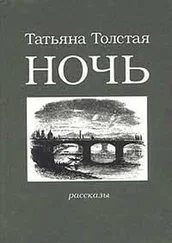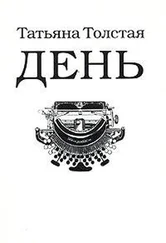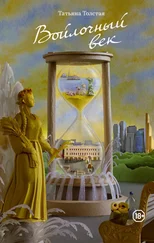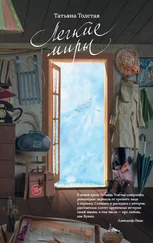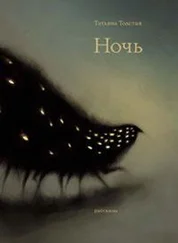I’m feeling stuffy, dusty, and hot. There is upheaval in my soul. My father has died and I loved him so much! Way back, forty years ago, he passed this way, through Ravenna, and sent me a postcard of one of its famous mosaics. On the back there is a note, in pencil for some reason, maybe he was in a hurry: “My dear daughter! Never have I seen anything more beautiful (see the reverse)! Makes me want to cry! If only you were here! Your father!”
Every sentence is punctuated by these silly exclamation points—he was young, he was jolly, perhaps he’d had a bit of wine. I can picture him with his felt hat pushed back—1950s style—tall, lean, handsome, cigarette between his white (and, at that point, still natural) teeth, tiny beads of sweat on his forehead, eyes shining happily behind the round spectacles…. The postcard—which he tossed into the mailbox, carelessly entrusting it to two unreliable postal services, the Italian and the Russian—bore an illustration of heaven. God is seated in a blindingly green, ever-vernal paradise, white sheep grazing around him. The two unreliable postal services rumpled and ruffled the postcard’s edges, but no matter, it arrived, and you can still make out pretty much everything.
If heaven exists, then that’s where my father is. Where else could he be? Even so, he’s dead, dead and no longer writing me postcards with exclamation points, no longer sending me tidings from all corners of the earth: I’m here, I love you, do you love me? Are you feeling happiness alongside me? Seeing the beauty that I am seeing? Hello to you! Here is a postcard! Here is a cheap, glossy photo—I was just here! It’s beautiful! Oh, if only you could have joined me!
He traveled the globe, and he liked what he saw.
And now, whenever possible, I follow in his footsteps, to the same cities that he visited, and I try to see them with his eyes, try to imagine him there, young, making a turn, walking up a staircase, leaning against an esplanade parapet with a cigarette between his lips. And here I am now, in Ravenna, that dusty, stifling town, exhausting as all tourist attractions are, crowds filling its narrow streets. It’s a dead, stale, sweltering town with no place to sit. The Tomb of Dante, who was exiled from his native Florence. The Mausoleum of Theodoric. The Mausoleum of Galla Placidia, half sister of Honorius, the one who made Ravenna the capital of the Roman Empire. Fifteen centuries have passed. Everything has changed. It all got covered with dust; the mosaics crumbled. That which was important became unimportant; that which excited retreated into the sands. The sea itself retreated, and where happy green waves once splashed there is now a wasteland of dust, silence, and scorching-hot vineyards. Forty years back—a lifetime ago—my father walked here, laughing, squinting myopically, sitting down at street cafés, drinking wine, biting off a crust of pizza with his then-natural, strong teeth. A blue dimness would descend. At the edge of the table, in pencil, he’d write me hurried notes of his delight in and love of this world, punctuating indiscriminately with exclamation points.
A stifling, cloudy sky. It’s hot, but you can’t see the sun. It’s dusty. The former seabed now surrounds the town as wide fecund fields; where crabs once swarmed, now donkeys roam; where kelp once undulated, now roses slumber. It’s a graveyard, deserted; the streets of the once-magnificent capital are filled with disenchanted American ladies in pink T-shirts, dissatisfied that they have been lied to yet again by the tourist agency: everything in this Europe place is so tiny, so old! Fifteen centuries. Dante’s Tomb. The Mausoleum of Galla Placidia. My father’s grave. A naive green Eden on a crumpled postcard.
What amazed him so? I find the church in question, I look up—sure, something green, way up there, under the vaulted ceiling. White sheep on a green lawn. Ordinary lighting. The discordant hum of the tourist throng below. They point, they consult their guidebooks. In the such-and-such century, such-and-such school of art. It’s the same everywhere. You can’t even make out the particulars.
All Italian churches have a little box mounted to the wall—an additional service for those who are interested. If you deposit a coin—worth a quarter of a dollar—projectors perched high up, just below the ceiling, illuminate it for a few moments, flooding the tesserae with fresh white light. The colors get brighter. You can make out the details. The crowd grows agitated, its murmur growing. All it takes is a quarter. After all, you did come from this far, you paid for the flight, for the train, the hotel, for the pizza and cold beverages, for the coffee. Are you really going to try to save a few cents now? But many do. They are displeased: they weren’t forewarned. They expected to see heaven for free. A group of tourists lies in wait until somebody, profligate and impatient, drops a coin into the slot of this Italian rip-off machine—all Italians are swindlers, right?—so the projectors can light up, and, for a brief moment, insufficient for the human eye to register, heaven will become greener, the sheep more innocent, God more kind. The crowd’s hum grows stronger… but the lights go out, and the murmur of disappointed tourists crescendos into rumbling protest, into greedy grumbles and frustrated whispers. And once again all is veiled in dusk.
I’m wandering from church to church with the crowds, listening to muffled multilingual voices that sound like breaking waves, swirling in the whirlpool of people; meaningless tired faces—just as meaningless as mine—flash by, eyeglasses glisten, guide pages rustle. I squeeze my way through the narrow doors of the churches, trying to push away those near me, trying, just as everyone else is, to find the best spot, trying not to get annoyed. If heaven exists, I say to myself, then I’ll be entering it with a crowd just like this one, a crowd of sheeple—old, dimwitted, and a little bit greedy. For if heaven is not for us, then for whom? pray tell. Who are those others, the more exceptional and the noticeably better than us statistically average folks?
There aren’t any; it’s entirely possible that I’ll have to wander the green pastures of heaven in a herd of American tourists unhappy about everything being so ancient and low. And if that is so, it means heaven is boring and awful—something that shouldn’t be true. Heaven can only be fantastically splendid.
“Never have I seen anything more beautiful (see the reverse)!” Father wrote to me. I flip to the other side. A garden-variety paradise. What did he see that I can’t see?
Together with the crowd I squeeze into a small building, about which the Russian traveler Pavel Muratov, living at the turn of the twentieth century, wrote this in his famous book Images of Italy:
The dark blue color of the ceiling at the Mausoleum of Galla Placidia is surprisingly and impossibly profound. Depending on how the light hits it, as it passes through the small windows, the blue, beautifully and unexpectedly, glistens with green, lilac, or crimson hues. And onto this background is superimposed the famous depiction of the Good Shepherd, sitting amongst a flock of snow-white sheep. Semicircles surrounding the windows are decorated with large ornaments of deer drinking from a spring. Garlands of leaves and berries spiral down low arches. The sight of their splendor makes you think that humanity has never been able to create a more artistic way of decorating church walls. And here, thanks to the tininess of the mausoleum chapel, the mosaic doesn’t appear a thing of vanity and icy grandeur. The air blazing with a blue light, which surrounds the sarcophagus that used to hold the embalmed remains of the empress, is worthy of the dreams of those with an ardent religious imagination. Wasn’t this also the aim, though by different means, of the artisans staining the glass of Gothic cathedrals?
Читать дальше


